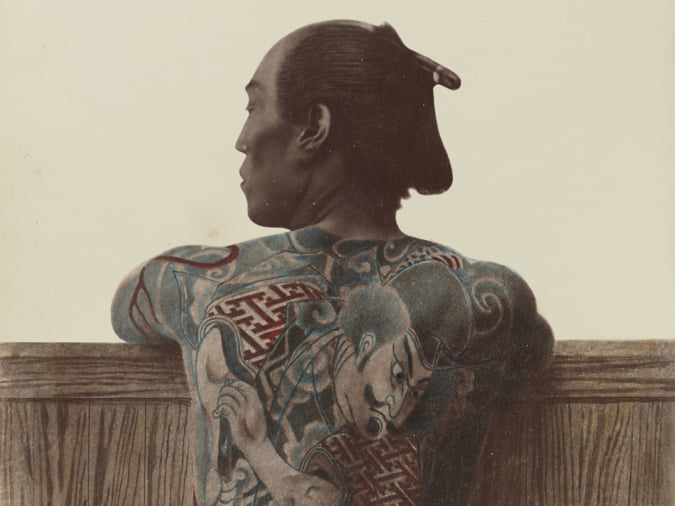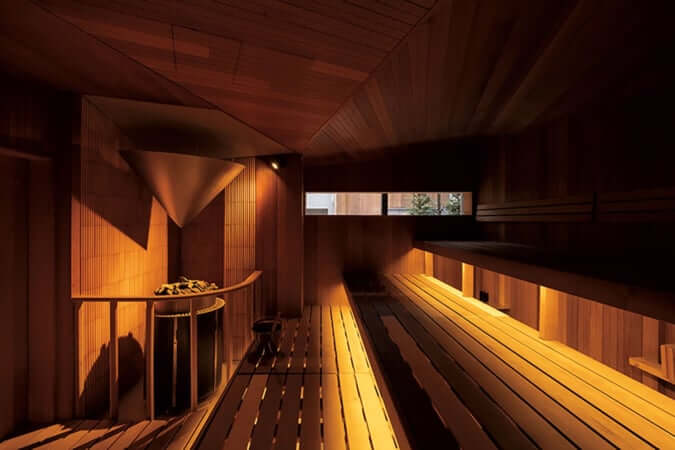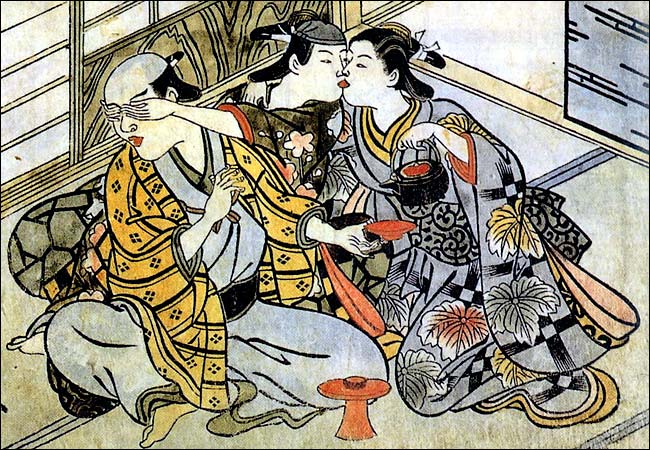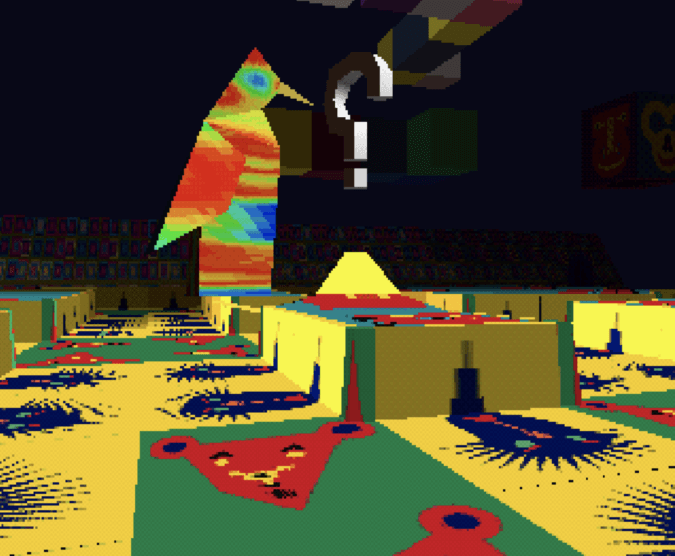Koffee Mameya, a Must-Visit Spot to Discover ‘Real’ Coffee
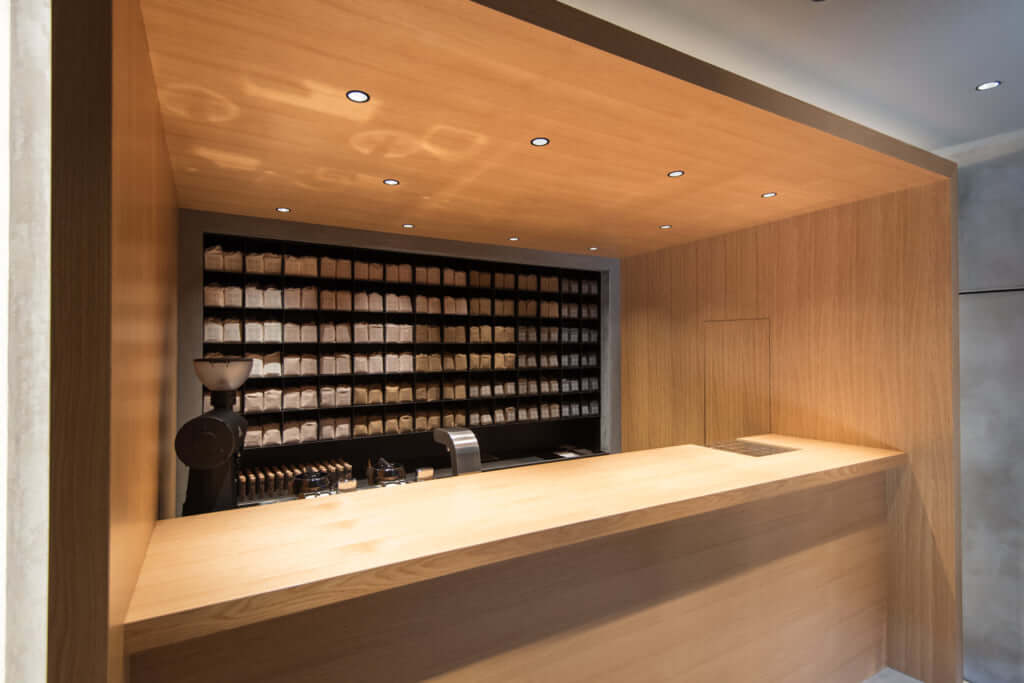
©Atsuko Toyama
Coffee is an integral part of our daily routine, helping us to wake up and being enjoyed during our breaks, but it’s often drunk in just a few mouthfuls, without us giving it much of a thought. At Koffee Mameya in Tokyo, however, it’s a serious matter, and this black gold is elevated to the status of an art that’s held in the highest esteem.
When Tokyoite coffee fans mourned the closure of Omotesando Koffee in 2015, its owner Eiichi Kunitomo – one of Japan’s most esteemed master baristas – opened a second coffee shop, Koffee Mameya. Still just as determined to share his love for coffee, Eiichi Kunitomo selects the finest coffee beans from all four corners of the world, from the most respected coffee houses such as Nagoya Bontain Coffee, Ogawa Cafe in Kyoto, Tokua Coffee in Fukuoka and Code Black in Melbourne. He wants customers to be able to buy exceptional coffee, but also to learn about the contrasts between the different varieties and their origins.
Koffee Mameya offers an incomparable experience that celebrates coffee. Here, the baristas, dressed in white shirts, are generous in their advice and introduce customers to coffee. They take close note of customers’ tastes and preferences and then use these to offer them the coffee that best corresponds to what they’re looking for. Once the coffee has been selected, the baristas carefully hand the customers a packet. The packet contains the coffee beans and a card that details their recommendations concerning the right brewing equipment and the ideal extraction time, because nothing is left to chance. ‘In Japan, customers often queue up to buy beans from famous roasters, but get home and, because of a few small errors, don’t like the coffee. That’s a real shame, so our baristas act as the middle point between roaster and customer’, Kunitomo explains.
Koffee Mameya goes beyond the simple act of buying coffee and seeks to create a lasting relationship between the barista and customer who, guided by the staff, will try different types of coffee until they find the rare treasure they were looking for. To achieve this, the architecture of the coffee shop is deliberately kept as minimalist as possible to showcase the varieties of coffee. Both the interior and exterior are made from raw materials like wood and concrete. There are no posters or signs on the walls that might catch the eye and therefore tarnish the experience. And, at the counter, customers can only drink espressos or filtered coffee standing up, as there are neither tables nor chairs. Customers are instead encouraged to continue their experience of the coffee in their own home. Koffee Mameya does not roast its coffee and instead prefers to only sell beans, and this is another deliberate choice. ‘We’re partnered with roasters who put their heart into their work, so our responsibility is to make sure their beans are thoroughly enjoyed’, Kunitomo explains. It’s a taste that can be refined by the most passionate coffee fans outside of opening hours, during workshops that enable people to perfect the art of coffee and discover all the riches that this black gold has to offer.
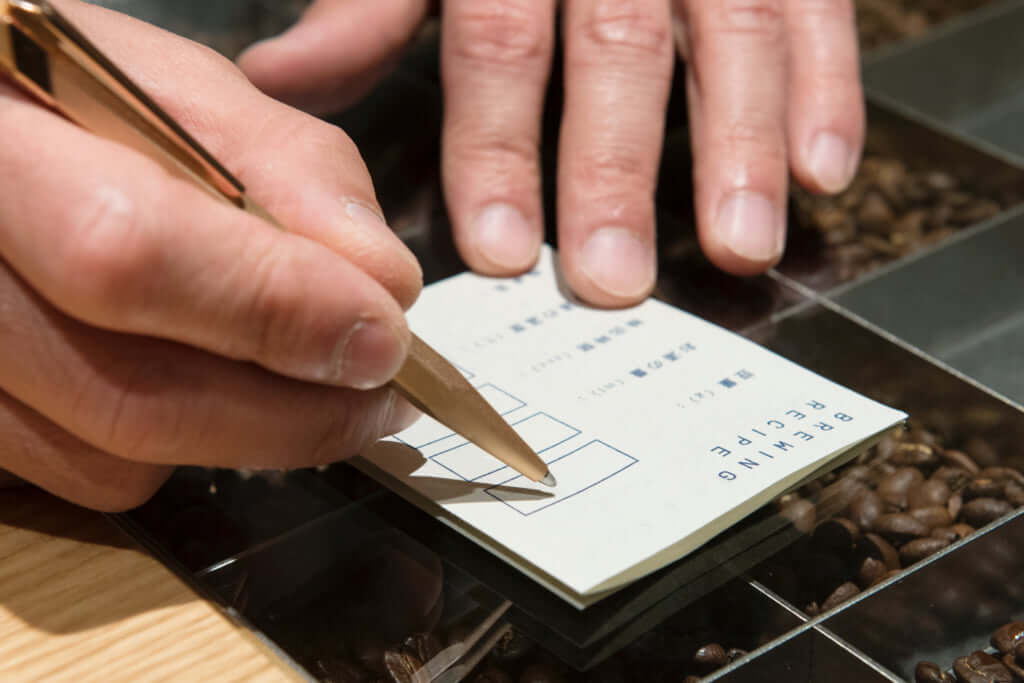
©Atsuko Toyama
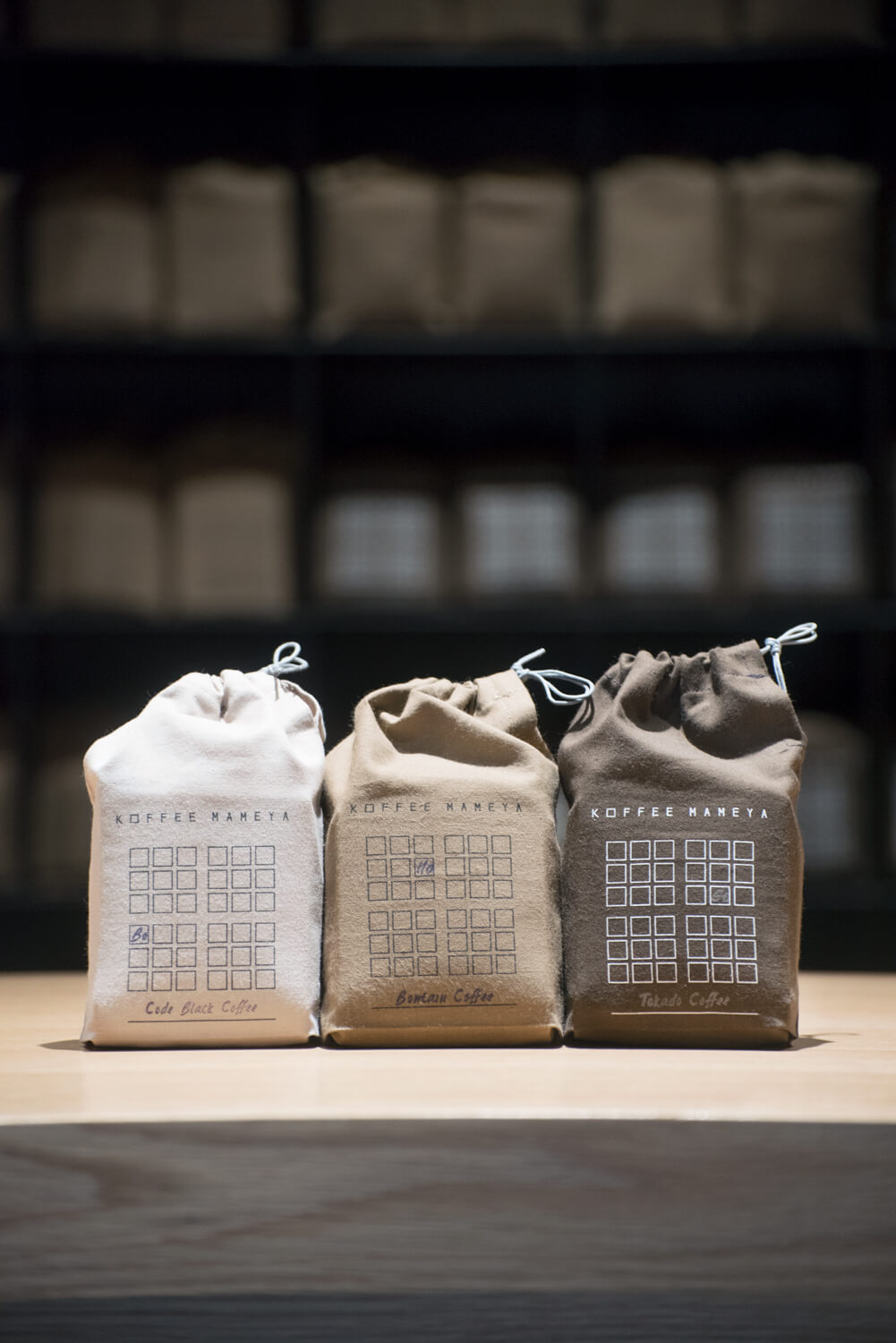
©Atsuko Toyama
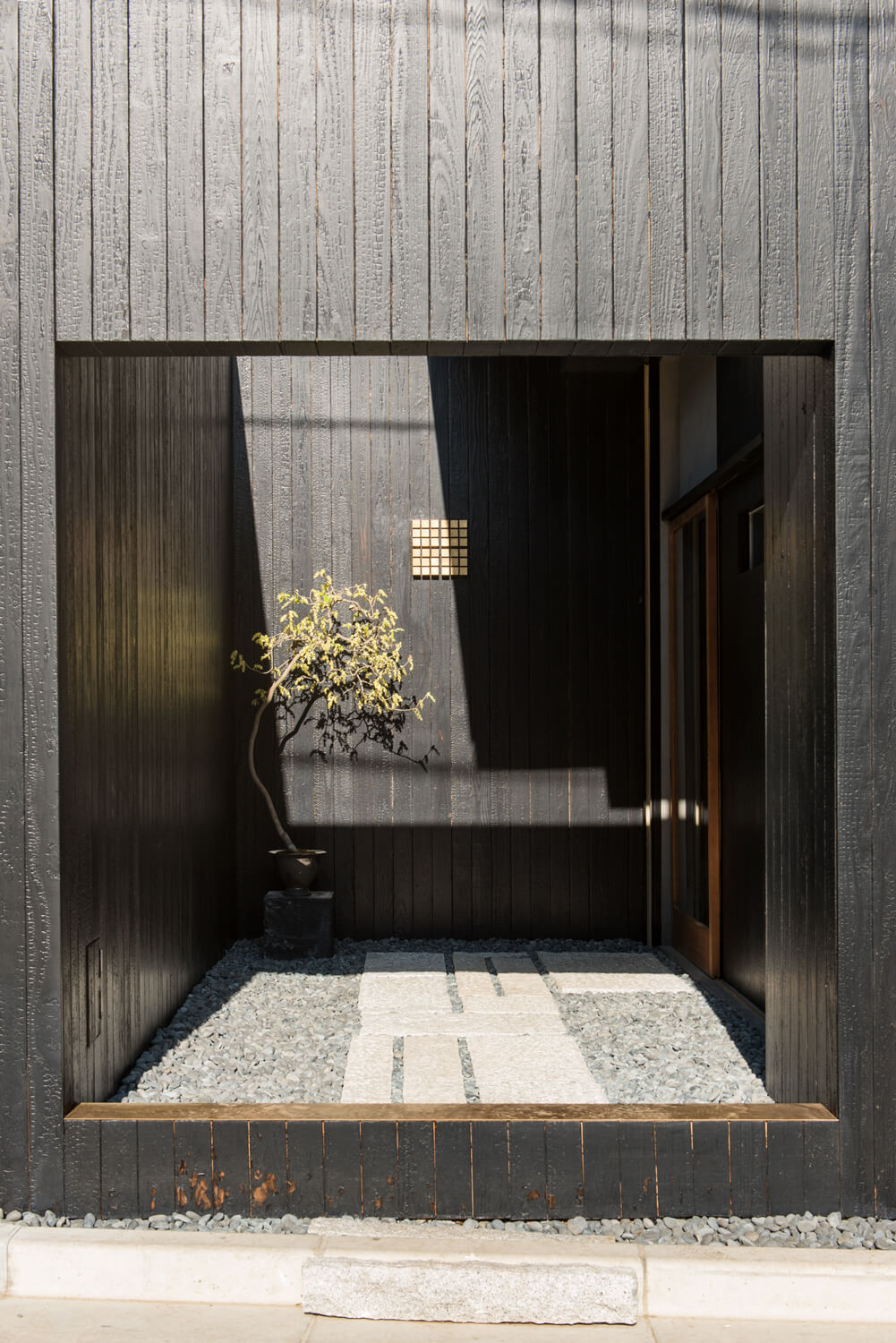
©Atsuko Toyama
Koffee Mameya
4-15-3 Jingu-mae, Shibuya-ku, Tokyo
Open every day from 10:00-18:00
TRENDING
-
The Tattoos that Marked the Criminals of the Edo Period
Traditional tattoos were strong signifiers; murderers had head tattoos, while theft might result in an arm tattoo.

-
Colour Photos of Yakuza Tattoos from the Meiji Period
19th-century photographs have captured the usually hidden tattoos that covered the bodies of the members of Japanese organised crime gangs.

-
The Trendiest ‘Sento’ and Saunas in Tokyo
The bath culture remains vibrant in the capital city, where public baths and saunas designed by renowned architects are continuously opening.

-
Rituals of Ancient Gay Shunga Erotica
Shunga was prolific in Japan during the Edo period, with ‘nanshoku’ referring to the depiction of homosexual erotica.

-
‘LSD: Dream Emulator’, an Avant-Garde Game Released on PlayStation
In this video game created by Osamu Sato and released in 1998, the player explores the surrealist, psychedelic environment of a dream.


